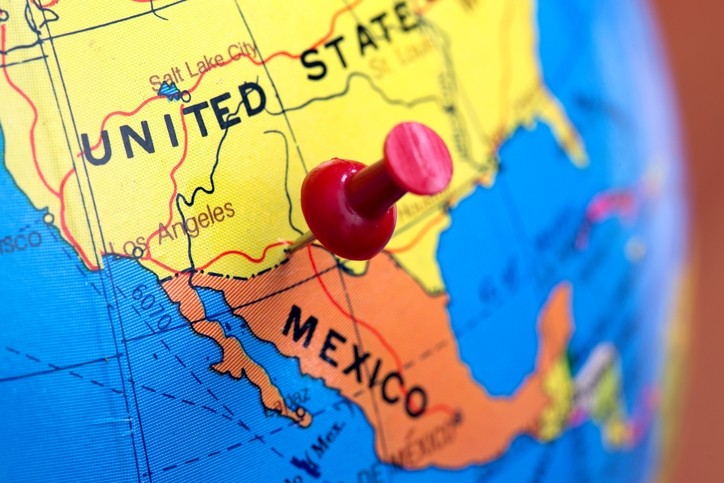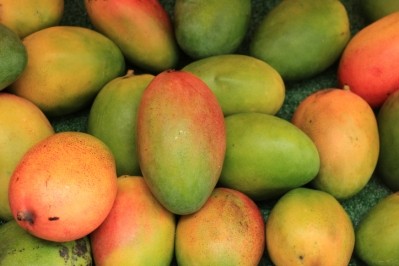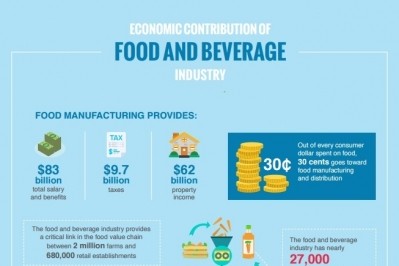Uncertainty over Trump's Mexico policy 'troubling for world food and agricultural markets'

When White House Press Secretary Sean Spicer told reporters on Air Force One about some options President Trump was looking at to fund his hallmark Mexico-US border wall last Wednesday, the idea that the new administration may tax Mexican imports by 20% made headlines.
Spicer later clarified that it was only a policy option, not a formal proposal. Economists and analysts reviewed a transcript of what the press secretary told journalists during that briefing, and media outlets such as The Economist and Slate surmised that he was talking more about a border tax adjustment instead of a punitive tax on Mexican imports.
But if Trump’s feud with Mexico goes on…
That same week, president of Mexico Enrique Peña Nieto cancelled his White House visit after Trump signed the executive order to build a wall along the Mexican border and insisted that Mexico would eventually pay the bill, NPR reported.
It is still unclear what the Mexico-US bilateral landscape will look under the new administration, and what impact it will have on the food industry. This uncertainty alone is discomforting to some in the food industry.
“It is very troubling for world food and agricultural markets for Administration spokespersons to bandy about terms like a 20% tax on all imports from Mexico or other countries,” Tom Stenzel, president and CEO of United Fresh Produce Association, told FoodNavigator-USA.
“The United States both exports and imports a very large amount of foods and agricultural products, and is dependent on fair and open markets. The U.S. has laws and trade agreements in place that do not allow any Administration to unilaterally start adding these types of tariffs,” he added.
Other major food companies with interests in both Mexico and the US have trodden carefully around the subject of a tariff. Barry Callebaut, the Belgian chocolate giant which has big facilities in Mexico that supply to the US, declined to comment. So did the North American Meat Institute (NAMI), though back in November, its president and CEO Barry Carpenter said that if the new administration fails to act on the Trans Pacific Partnership (TPP) agreement, there can be significant and "potentially devastating" economic consequences. Last week, President Trump abandoned the TTP deal.
A survey FoodNavigator-USA conducted back in November revealed that outlooks on the new presidency were mixed—33% predicted Trump’s administration would have a positive impact on the food industry versus 46% thinking negative.
The numbers (in avocados)
Punitive tariffs may trigger trade wars (which The New York Times contends may have already started), and if there were to be a 20% levy on Mexican imports, the other country may retaliate, and many analysts say US consumers and producers will end up footing the bill for the wall.
To illustrate how this may happen, the Chicago Tribune reported that Americans would need to buy 25 billion avocados for Mexico to pay for the wall.
“Overall, avocado imports benefit both the Mexican and U.S. economies, and studies show that avocado imports contribute to the U.S. economy by directly and indirectly creating jobs and stimulating growth,” a spokesperson from Avocados from Mexico told FoodNavigator-USA.
“Specifically, in 2015, U.S. imports generated $3.5 billion in economic output, $2.2 billion to the U.S. GDP, $1.2 billion in labor income, $594 million in taxes and 19,000 jobs to American workers—as the leading avocado brand, we remain confident that the trade policy between our two governments will continue to support U.S. consumers’ growing love of avocados.”
Mexico, a major trading partner for the US food, beverage, and agricultural industry
According to the Office of the United States Trade Representative, Mexico is the US’ third largest goods trading partner with $531 billion in total (two way) goods traded during 2015.
US agricultural products from Mexico totaled $21 billion in 2015, making it the second largest supplier of agricultural imports. Leading industries include fresh vegetables, fresh fruit, wine and beer, snack foods, and processed fruit and vegetables.
Agricultural exports to Mexico totaled $18 billion, led by corn, soybeans, dairy products, pork and pork products, and beef and beef products.
A coalition of major food companies reminded Trump of the economic impact that the agricultural industry has made thanks to NAFTA.
“Together Canada, Mexico and the United States make up one of the most competitive and successful economic regions in the world. The success of this trading relationship has come largely from economic cooperation, integration, and policy alignment,” read the letter to the president, signed by a coalition of food companies which included Cargill, Tyson, and many trade groups representing dairy farmers, pork producers, corn growers, and more.
(The full letter can be read HERE).
















